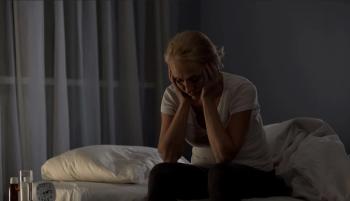
APSS: Police Suffer from Sleep Disorders
MINNEAPOLIS -- Four out of 10 police officers may be working with sleep abnormalities, researchers said here.
MINNEAPOLIS, June 13 -- Four out of 10 police officers may be working with sleep abnormalities, researchers here said.
A survey of 5,296 police officers in North America found that 38.8% of active-duty officers suffer from sleep apnea, insomnia, restless legs syndrome, or narcolepsy, researchers reported at the Associated Professional Sleep Societies meeting.
But if sleep disorders are common, treatment was not, said Shantha Rajaratnam, Ph.D., of Harvard.
"Almost half of the 365 individuals diagnosed with obstructive sleep apnea in the past reported that they do not regularly take treatment," he noted. "These data confirm that sleep disorders remain largely undiagnosed and untreated."
Dr. Rajaratnam and colleagues surveyed police officers online and through paper surveys mailed or distributed at police departments; 80% replied online.
The average age of the police officers who responded was 38 and 77% were men, Dr. Rajaratnam said.
Among the findings:
- Sleep apnea had been diagnosed in 365 police officers: 139 were being treated for it; 55 were no longer receiving treatment; and 171 had not been treated for it.
- Insomnia had been diagnosed in 471 officers: 85 were undergoing treatment; 214 were not being treated; and 172 said they were not currently suffering from insomnia.
- For restless legs syndrome, 215 officers said they'd been diagnosed with it: 59 officers had been treated in the past; 131 had not been treated for it; 25 were being treated.
- Shift work disorder was diagnosed in 418 policemen, 37 were being treated for it; 195 were not, and 186 policemen said they no longer have the disorder.
- Narcolepsy was diagnosed in 19 officers: two were being treated; eight were not; and 9 said they don't have it now.
Dr. Rajaratnam said the results of the survey suggest that "given the large number of officers who screened positive for sleep disorders, sleep disorder screening and treatment programs should be implemented with the aim of improving police officer health, safety and productivity."
Newsletter
Enhance your clinical practice with the Patient Care newsletter, offering the latest evidence-based guidelines, diagnostic insights, and treatment strategies for primary care physicians.
































































































































